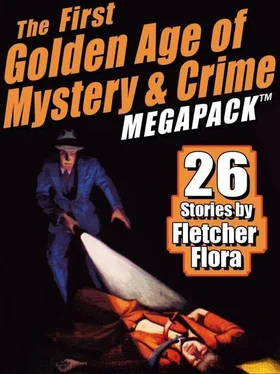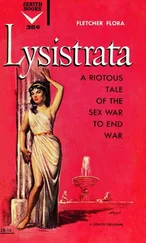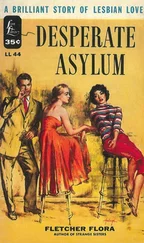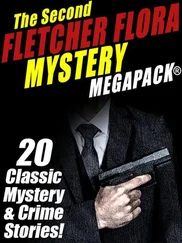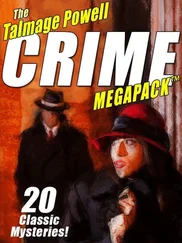He was the only one who called her that. Hannah called her missy or Teresa, and Mother called her Teresa or darling, and Father called her Teresa or child, but Cousin Kelly always called her by the warm diminutive, and it was something special between them, another secret shared. Rising, she held out a hand, and he took it and kept it in his.
“Hello, Cousin Kelly. I’ve been waiting: for you.”
“Am I late?”
“Oh, no. I was early.”
“I’m flattered. Shall we walk over to the fountain?”
“I’d like that. And then perhaps we can walk under the trees.”
So they went over to the fountain and laughed at their distorted reflections in the pool, and Cousin Kelly told her about the foolish Grecian boy who had fallen in love with himself when looking at his reflection in another pool long ago. She had heard the story before, but it seemed new and much more exciting the way Cousin Kelly told it. Afterward they began walking on the grass beneath the trees, trying to identify each tree by the size and shape of its leaves, and they held hands all the while. There was only one tiny blemish on the nearly perfect afternoon.
That was when they met Mrs. Carter. Mrs. Carter lived in the apartment building on the fourth floor, and she was walking her poodle in the park on a leash. Teresa and Cousin Kelly had come across the grass, and Mrs. Carter was strolling along the walk, pausing now and again to let the poodle sniff at things and do his duty, and they all just happened to reach a certain point from different directions at the same time. Teresa spoke politely to Mrs. Carter, who pulled up the poodle and stopped to exchange a few words with Teresa, and this was all right except that Mrs. Carter paid absolutely no attention to Cousin Kelly, although he was standing there holding Teresa by the hand all the while. For all the recognition Mrs. Carter gave him, Cousin Kelly might as well have been somewhere else, and Teresa thought it was very rude of Mrs. Carter. Afterward she told Cousin Kelly how rude she thought Mrs. Carter had been, but Cousin Kelly only laughed and said it didn’t matter, and actually, considering all the rest of the wonderful afternoon, it didn’t.
Eventually they came back to the bench from which they had started. They sat down together to rest and talk, and Teresa was beginning to feel sad because it was getting late, almost five o’clock, and soon she would have to leave.
“Will I see you tomorrow?” Teresa asked.
“If you wish.”
“Where shall I meet your”
“If it’s another nice day, we can meet here. Otherwise, wait for me in your room, like last Sunday, and I’ll slip up.”
It had gotten a little cooler, and the shadows of everything lay longer to the east on the grass, and Teresa’s sense of sadness was growing stronger.
“It’s so long from Sunday to Saturday,” she said.
“Yes,” he said, “it is.”
“I wish you could come and live with me all the time.”
“Do you. Tess? So do I.”
“Why don’t Mother and Father like you?”
“It’s an old story, but never mind. You could make them like me if you tried.”
“How could I?”
Fie reached into a pocket of his jacket and brought out a sealed white envelope with something in it. His voice was light, and the grave laughter was in his eyes.
“By putting some of this in something they drink,” he said.
“What is it?”
“It’s a love potion.”
“You mean like in fairy stories?”
“Yes.”
“I thought that was only make-believe.”
“Oh, no. There is more truth than you imagine in fairy stories. When your mother and father drink something with some of this powder in it, they will immediately like me, just as you do, and then they will ask me to come and stay with you all the time.”
“Do you really think so?”
“Try it and see.”
He extended the envelope, and she took it and put it in the pocket of her yellow jumper.
“I will,” she said.
Then it was time to go. Father would surely be home from the office, and Mother would be getting cross and anxious, and pretty soon, if Teresa didn’t hurry, would be sending Hannah across the boulevard to fetch her. Parting from Cousin Kelly was not so hard on Saturdays as it was on Sundays, anyhow, because the time between parting and meeting was so much shorter. So, saying good-bye, she hurried off down the walk toward the stone gate. Once she stopped and turned and waved, and Cousin Kelly, waiting and watching by the bench, waved back, then turned and went away himself in the opposite direction.
In the apartment. Mother and Father were sitting together in the living room. It was immediately apparent to Teresa from Father’s expression that his day had not gone well, and the atmosphere in the living room was oppressive, but there was, fortunately, imminent hope of relief, for it was time for cocktails. Teresa said hello politely to Father, who grunted, and Mother looked as she invariably did when she was about to be moderately severe about something.
“Where have you been all this time, Teresa?” Mother asked.
“I told you where I was going. Mother. I went to the park. You gave me permission.”
“I didn’t give you permission to stay indefinitely.”
“I’m sorry. It was such a nice afternoon, and I was with Cousin Kelly.”
Father looked up angrily and slapped the arm of his chair with the flat of his hand.
“Cousin Kelly again! However did the child get started on this thing? When did she ever even hear of Kelly?”
Mother must have heard Father’s outburst, but she gave no sign of it. Her expression had changed suddenly to the cold and stony one which warned that she had at last had all of something that she could stand, and had determined to resolve a problem, no matter how unpleasant the resolving might be. Her voice, as if in compensation, was softly fraught with dreadful reasonableness.
“You did not see Cousin Kelly,” she said. “You did not see Cousin Kelly this afternoon or any other afternoon, because Cousin Kelly is dead. He was dead and buried, Teresa, before you were born.” Teresa heard the words, of course, but they had no higher meaning. They did not prick her intelligence or elicit an emotional reaction. How could Cousin Kelly be dead when she had just parted from him in the park?
“I saw him this afternoon,” she said, “and I’ll sec him again tomorrow. I see him every Saturday and Sunday.”
“The child has a morbid imagination, that’s all,” Father said. “She needs professional attention. Tell me, Teresa, what docs Cousin Kelly look like? Describe him for me.”
“He is about as tall as you,” Teresa said, “but much thinner. He has very light hair that looks silver in the sun, and he has blue eyes that laugh. On one cheek he has a scar that sometimes you can hardly see.”
Father looked stunned for a moment, and Mother caught her breath with a sharp gasp.
“She’s seen a picture somewhere;’ Father said. “She’s surely seen a picture.”
“This must stop!” Mother’s voice still held that dreadful reasonableness, her face the expression of grim decision. “Listen to me, Teresa. Cousin Kelly is dead. He is dead because I killed him. It was an accident, a tragic accident, and it happened years ago. We had taken an outing in the country, Kelly and I and our parents. We had gone to a place high on a bluff above a river. Kelly and I had quarreled. I was furious with him. I wanted to be alone, and I walked away from the others to the edge of the bluff, but Kelly followed. He came up beside me and took me by the arm and started to say something. I turned and jerked my arm free. I don’t know what happened exactly. I must have pushed him without thinking or meaning to.” Mother’s voice was silent, the horror of that remote moment invoked again by the telling, and then it went on quietly and quickly, as if to be done as soon as could be. “He was standing at the edge of the bluff, and he fell over. He was killed. He was dead when my father and my uncle reached him. They always blamed me, my aunt and uncle — Kelly’s mother and father. They still do. They thought I pushed him deliberately in a fit of anger. But it was an accident. That’s all it was, Teresa. It was a terrible accident, and Cousin Kelly is dead.”
Читать дальше
